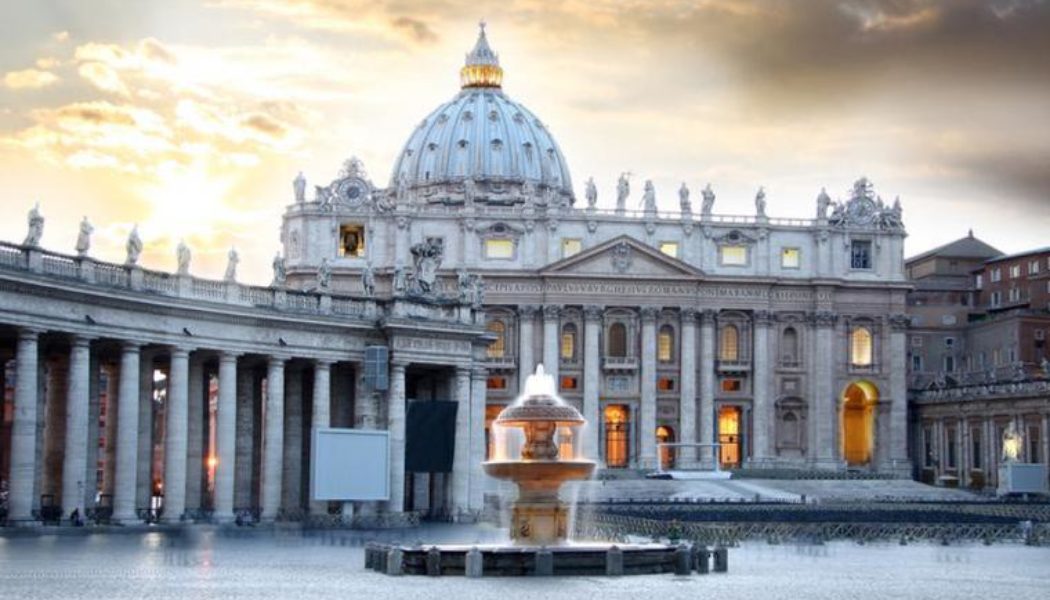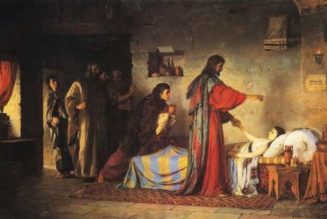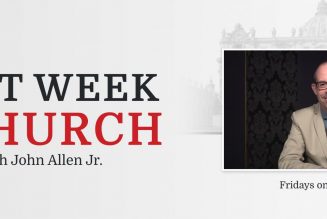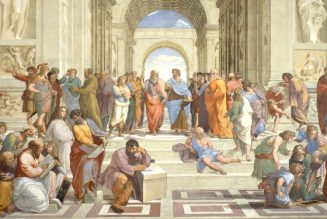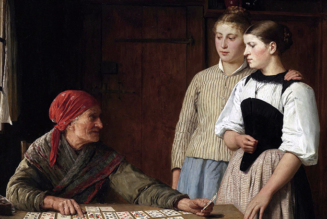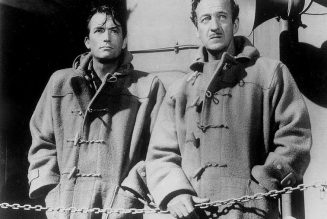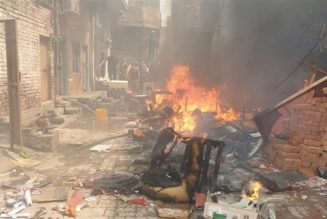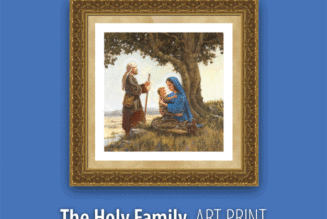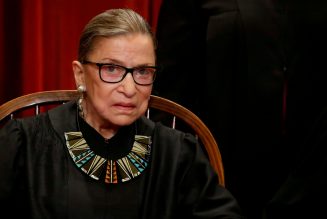
It was a very strange week for Vatican communications.
Pope Francis was badly served in June when his communications chief, Paolo Ruffini, defended his department’s ongoing use of Father Marko Rupnik’s art by invoking the unofficial motto of the pontificate, “Who am I to judge?”
Certainly, the Holy Father could not have been pleased that his most famous phrase was being deployed to defend art that, for example, the Knights of Columbus has decided to remove from display.
The week after the Paris Olympics’ opening ceremonies ought to have been comparatively easy for Vatican communications to handle. When there is a global denunciation of anti-Christian blasphemy, it ought to be simple for the Vatican to add its voice.
But instead, the Holy Father kept silent for eight days, and only released a tepid statement on a Saturday evening in the most understated manner possible. It was decidedly little and very late.
While the brief statement said that the Holy See “cannot but join the voices raised in recent days to deplore the offense,” it had spent the week proving that it could do just that. It was only when voices from outside the Catholic world spoke out that the Holy Father decided to speak himself.
What happened?
Forgetting Charlie Hebdo?
In January 2015, Islamist terrorists killed 12 people in the Paris offices of the satirical newspaper Charlie Hebdo, claiming to avenge cartoons that depicted offensive images of Muhammad. Pope Francis addressed the matter in an airborne press conference.
“You cannot provoke. You cannot insult the faith of others. You cannot make fun of the faith,” Pope Francis said. Those who make such provocations “can expect a punch.”
The remarks were widely debated at the time, as they seemed to show some sympathy for the terrorists’ motivations, while condemning their actions. “But we cannot kill in God’s name,” Francis said. “This is an aberration.”
The Holy Father was clear in 2015 about not insulting the faith of Muslims. It should have been easy for the Vatican to state the same about insults to the Catholic faith. Both events were in the same city.
Constantinople and Cairo Speak
Within 24 hours of the Friday ceremonies, the French bishops had issued their statement, as had Bishop Robert Barron and Bishop Andrew Cozzens, both of Minnesota. Much more important, Patriarch Bartholomew of Constantinople, the “first among equals” among the Orthodox Churches, issued a statement on Monday, lamenting the “insulting performances.”
“Blasphemy towards God is not progress, nor is it a right to insult the religious beliefs of our fellow men,” it read. “The spontaneous expression of aversion and disapproval by the world, hopefully, has sent a sufficiently loud message to those responsible and is a source of hope to avoid similar actions in the future.”
Constantinople’s praise for “sufficiently loud” “expression[s] of aversion” was an open invitation for other Christian pastors to speak. Given the exceptionally close relationship between Pope Francis and Patriarch Bartholomew, it would have seemed automatic for the former to join the latter.
Also that Monday, the Muslim Council of Elders, led by chairman Sheikh Ahmed al-Tayeb, the Grand Imam of al-Azhar in Cairo, condemned the Paris ceremonies, which “blatantly insulted Jesus Christ and the esteemed status of prophethood.” The Muslim Elders further rejected “all attempts to demean religious symbols, beliefs, and sacred figures.”
Al-Azhar is a leading center of Islamic scholarship in Cairo and is a favored dialogue partner of the Vatican. In 2019, Sheikh al-Tayeb and Pope Francis met in Abu Dhabi to co-sign the “Document on Human Fraternity for World Peace and Living Together,” one of the most important initiatives of the pontificate. Al-Tayeb referenced that declaration in his condemnation of what took place in Paris.
Bartholomew and al-Tayeb are two of the most important religious leaders in the world, and both are close collaborators with Pope Francis. They would have been reluctant to comment strongly upon something going on in a historically Catholic country if they thought it would put Pope Francis in a difficult position. On the contrary, both likely expected that they would be reinforcing the Vatican’s response. That the Vatican would, in fact, not join them was more than strange.
No Outrage but Outreach
While there was no outrage from the Vatican, Vatican News did publish on Thursday a brief message from the Holy Father to Jesuit Father James Martin on the occasion of his annual Outreach conference. Pope Francis does that every year.
This year’s handwritten papal note was dated July 11, well before the Olympics. Nevertheless, the release of a supporting note for Outreach — Father Martin’s effort to “celebrate and elevate the LGBTQ Catholic experience” — was unfortunate timing. Some of the drag queen performers in the blasphemy in Paris characterized their work as a celebration of the LGBTQ community. Skilled communications officials ought not to have been silent on outrage while affirming Outreach.
The Turk Is Not Delighted
Having resisted joining his fellow Catholic bishops and Orthodox and Muslim leaders, Pope Francis finally gave in. Pressure came from the president of Turkey, an unlikely source.
The process by which Pope Francis finally conceded to say something was reported by papal friend Gerard O’Connell, a preferred inside source for this pontificate. As a friend of Pope Francis for 20 years, O’Connell provides in America magazine inside information that the Holy Father’s courtiers wish to make known. In this case, those close to the Holy Father wanted to describe the impact that other figures had on his reaction.
On the same day that Vatican News published the message to Outreach, President Recep Tayyip Erdoğan of Turkey revealed that he had spoken by phone with Pope Francis about the “immoral displays at the opening of the Paris Olympic Games which caused outrage and provoked reactions.”
The president’s office reported that Erdoğan told the Holy Father that “it was necessary to raise voices together and take a common stance in this regard.”
That was likely the final point at which, having received an explicit — and publicly disclosed — request from a Muslim head of government, the Holy See could no longer resist. Another two days would pass before the muted statement would be sent out after hours on Saturday evening. Previous generations of Ottomans would have been surprised to learn of such Turkish influence in Rome.
Thus ended a strange week in Paris. Rome kept silent on anti-Christian blasphemy but, just as Pope Francis defended Muslim sensibilities in 2015, Muslims defended Christian sensibilities now. Strange times indeed.
